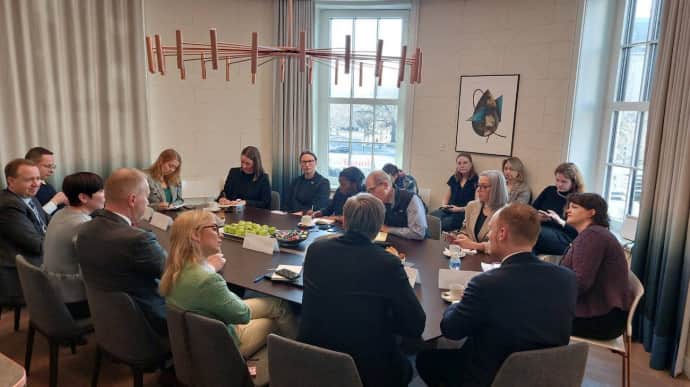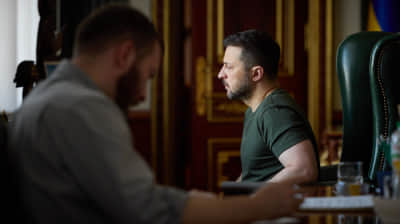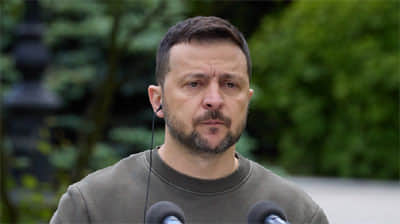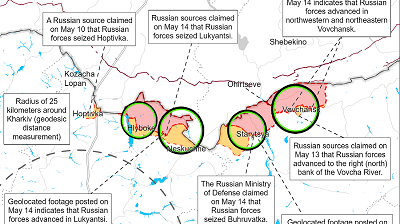Lawmakers from Baltic and Northern European countries express their concerns about assistance to Ukraine during US visit

High-ranking lawmakers from Northern European and Baltic countries, who visited Washington on Thursday, 8 February, have expressed concern over what they consider a lack of urgency or a clear strategy from the United States regarding assistance to Ukraine in countering Russian invasion.
Source: Euractiv, as reported by European Pravda
Details: Legislators said that if Russian President Vladimir Putin wins in Ukraine, he will occupy more European territories, which increases the danger of conflict with the US-led NATO alliance, leading to significant losses in terms of people and economy.
"Guys, wake up. Are you ready to defeat enemy No. 1, who is acting like the Hitler of today?" said Žygimantas Pavilionis, chairman of the Lithuanian parliament’s Foreign Affairs Committee, addressing Democrats and Republicans.
The gloomy assessment of how Washington is handling the threat of the biggest conflict in Europe since World War II highlighted growing concerns on both sides of the Atlantic over the fact that US domestic hostility is undermining support for Ukraine.
The parliamentary foreign affairs committee chairs from Latvia, Estonia, Lithuania, Sweden, Denmark, Iceland and Norway appealed for new assistance from the US at the end of the two-day visit, as Ukraine struggles with a shortage of ammunition and continuing Russian assaults. All countries except Sweden, are NATO members.
The arguments in the US Congress about immigration-related issues are slowing down the allocation of US$61 billion in new military assistance.
Delegation members reported that they met with the administration representatives and lawmakers, but mainly sought to speak with Republicans who are resisting the new assistance. They noted that only one sceptical Republican member of the House agreed to meet with them.
"There wasn’t a sense of urgency," Latvian parliamentarian Rihards Kols stated, adding that it was "bizarre" that some US lawmakers were urging Europeans to engage more with US citizens to explain how important Russia's victory was.
"It is your job to do that," he replied.
Several delegation members criticised President Joe Biden for opposing Ukraine's accession to NATO, as well as for his strategy of "doing what it takes" to help Kyiv.
"We aren’t hearing a clear [US] message about how this war should end up," said Marko Mihkelson, Chairperson of the Estonian parliamentary foreign affairs committee.
The delegation members noted that they have repeatedly heard that Europe is not doing enough to help Ukraine. Kols called it an untrue claim that "has really played into Putin’s cards" with narratives about war fatigue.
"All of our countries around this table have (given) more than 1% of their GDP in military aid to Ukraine. The US stands (at) around 0.3%," Mihkelson pointed out.
Kols emphasised that Russia has greatly increased its military budget, its defence industry operates around the clock, and Moscow imports Western technology despite international sanctions.
"We should not underestimate their will to outlast us. They don’t care about human lives. They don’t care about the cost. We should wake up," he concluded.
Background:
- On 8 February, the US Senate adopted a procedural decision for further consideration of the bill allocating additional assistance to Ukraine, Israel and Taiwan.
- The bill includes US$61 billion for Ukraine's efforts to counter Russian aggression, US$14 billion for Israel's war on Hamas, and US$4.83 billion to support Indo-Pacific partners, including Taiwan and to deter Chinese aggression.
Support UP or become our patron!







